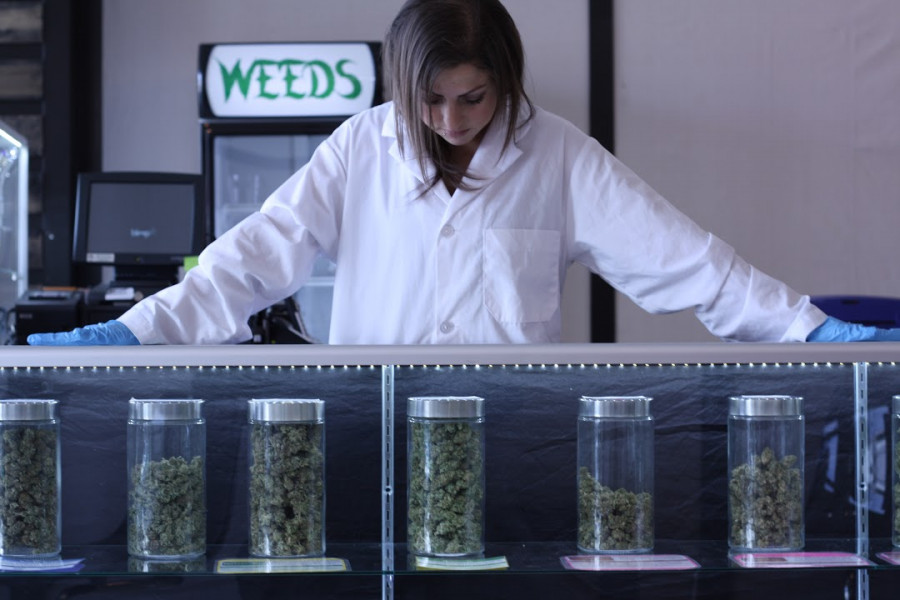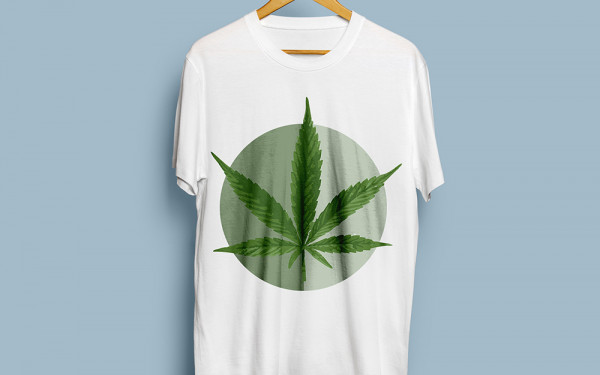Watching Grass Grow
How to Get a Medical Marijuana Card in Vancouver
There was a time when I believed that Canada would be the first country in North America to legalize weed. Sure California had its pseudo-legal dispensaries since 1996 but in 2003 we had Prime Minister Jean Chrétien proudly announce, “I will have my money for my fine and a joint in the other hand,” when marijuana was on the verge of being decriminalized.
Flash forward to 2015 and the world looks a whole lot stranger. South of the border, in the land of “Just say NO!” four states have completely legalized recreational marijuana yet back here the laws regarding possession and sale of marijuana have only become harsher, at least, for most of the country.
British Columbia has always had a weird love affair with marijuana. Before the Mexican cartels and independent American growers edged their way into the scene, B.C was the main green line to the U.S. market with Vancouver as the gateway to the gateway drug. Rumours that one in every four houses in the city of Surrey was a grow-op were so prevalent that the RCMP created a database for prospective homebuyers to check to see if their future home was a previous bust.
Vancouver has always been on the front lines of the war against the war on drugs. The city was home to Canada’s first pot cafes, produced seed king Marc Emery and on April 20 each year becomes the largest marijuana activism festival in North America.
This relaxed atmosphere made it easy to buy weed pretty much anywhere in the city. In August 2014, I arrived in Vancouver and immediately hit up Craigslist to find a hookup and within 15 minutes was on my way to meet Robbie, a street dealer whose advertisement prided himself on quality and quickness.
Being the connoisseur that I am, I told Robbie to text me whenever he got any AAA but his response surprised me.
“Man, the dispensaries are buying up most of the good shit so right now this is what I got.”
“Dispensaries?” I asked quizzically.
“Yeah the dispensaries are popping up everywhere any buying up anything that’s worth getting they’re killing the business for people like me.”
That was the first and last time I ever saw Robbie.
In 2013, Vancouver took another big step forward. Dispensaries, like the kind you might find in California, started popping up all over the city. By the time you are reading this sentence there will be almost 60 registered medical marijuana dispensaries located throughout the greater metropolitan area, surpassing the retail space of iconic drug dealing franchise Tim Hortons.
The real red-eye opener comes from the fact that 40 of those stores have opened after April 1, 2014, the day Harper’s Conservative majority tightened the laws surrounding medical marijuana in Canada, technically making every single one of those stores and all of the previous ones illegal.
April 1 marks the first year anniversary of Canada’s reformed medical marijuana industry.
What used to be a program where patients could source or even grow their own medicine, has turned into a privatized program where only government approved commercial growers are mandated to mail pot directly from the industrial grow ops to the 37,000 registered users.
So far only eight companies have been given approval to grow commercially as the start-up costs and tight regulations limit the prospective entrepreneurs from entering the market.
But back in Vancouver these new laws sound more like a faint echo reverberating over the Rockies.
On Kingsway Blvd., tucked beside a laundromat is Weeds Glass & Gifts. It’s just one of the locations that make up Vancouver’s—but technically Canada’s—largest chain of dispensaries. Owner Don Briere, is a storied marijuana cultivator who in the 1990s was operating Canada’s largest independent marijuana distribution network and served years in prison for doing it. Nowadays, he pays taxes on the money he makes off the exact same crime that sent him to jail and shakes hands with the police who used to spend untold amounts of money hunting him down.
“I feel vindicated,” he says enthusiastically.
“I love them and they [the police] love me… they acknowledge and realize and know that we’re paying taxes, income tax, property tax, GST, PST, corporate taxes but that best part they like is that were taking money away from the gangs.”
Taxes are just one of the many reasons why the Vancouver Police have chosen to ignore the federal statutes and left the dispensaries alone.
“Their jewelry around their neck is worth more than your car, and their cars are worth more than your house, and the reason why is because they don’t pay taxes.”
Advocates have long protested that legalization will remove the profit from trafficking away from the gangs in Vancouver who fight viciously over the lucrative U.S export market.
“They’re totally on board with us here in Vancouver and once they come on board they’re our friends they protect us, if we’re being robbed it’d be 911 armed robbery in progress”
This protection afforded to the dispensaries has completely changed the experience of buying marijuana and the stigma attached to it. On my first trip down to Weeds, a police cruiser was ominously parked on the street directly in front of the store.
My first instinct was to leave immediately, assuming the store was getting busted and ending my little adventure before it even began but on a closer inspection I realized that the officer was holding a radar gun and doing far more important police work: pulling people over for speeding.
Upon entering a dispensary for the first time you begin to realize that what used to be a shady affair set in the shadows of society has turned into something more akin to heading down to Starbucks for a Grande-iced-sugar free-vanilla-soy milk-latte—well, almost.
To maintain the “medical” aspect of the dispensary the walls were white and lacking any decorations giving it a very clinical vibe. In the center of the room was an immaculate glass display housing all the tinctures, edibles, candies, lotions, paraphernalia, T-shirts and last but not at all the least, big jars of weed.
Behind the counter wearing a little-too-big white lab coat and blue medical gloves was Mel, a 20-something who calls herself a health and wellness consultant and does this job on the weekends while maintaining a regular 9-5 during the week.
As I peer through the glass at all the different vials and jars I ask her why she decided to start working at the dispensary.
“I think it’s a nice relaxing job and it’s kind of cool how people come in here with the same problems I have, I have insomnia, it helps me sleep.”
To purchase anything with active chemicals in any dispensary, you must first get a membership card that vary from place to place. Since Weeds is a chain, their cards are valid at any of the locations throughout B.C.
On the counter, a sign welcomes members to the “society” and explains the different ways one can qualify for a membership:
Dr.’s note:
A prescription for a pharmaceutical drug
A pill bottle with a prescription printed on the label
Luckily, I came prepared with an old prescription bottle which Mel glances over thoroughly, records the information and then asks me “so what can I get for you today?”
The big difference between drug dealers and dispensaries from a medical perspective is the dispensaries offer choice. Sativa and Indica are the main genus of Cannabis and each one offers different properties to treat different symptoms, and then there are the strains.
Pink, Grapefruit, Generation Y, Bubba Kush, Master Kush, Sour Diesel, Candy, Burmese, Hindu Kush, Chocolate Chunk… the names really did make me feel like a kid in a candy store.
“It’s nice that there are different strains,” Mel says with a smile.
“With drug dealers, you never know what you’re going to get, you can’t ask them, you can’t ask questions and you’re paying top dollar for shitty weed.”
“What do you recommend?” I ask.
“The Sativa is for the daytime, you can still function it leaves you clear-headed and then there are the hybrids for later in the day unless you’re partying then I’d stick to the Sativas all night,” she laughs.
“And then there are the Indicas to wind down, watch a movie, you know, like a chill Friday night.”
One by one she pulls put the jars and with her blue gloves picks out and hands me a bud from each.
Days of getting handed a wrapped up baggie of whatever I was forced to buy flittered in my head as I picked up each strain to my nose like a fine wine before holding it up to the light, watching the crystals twinkle like a diamond.
There is a limit to how much you can buy at the dispensary. Similar to Colorado and Washington’s recreational stores, a limit of one ounce can be purchased at a time.
I picked out seven 1 gram baggies of various strains and Mel charges me the bulk price of a quarter.
Before heading home I purchase a dab and then watch the health and wellness consultant break off a piece of crystallized THC, heat up the bong with a torch and then drop the piece into the bowl as it evaporates into a cloud of smoke.
I say goodbye to Mel and leave the dispensary stoned and holding a little brown bag of drugs. There’s no paranoia, no looking over my shoulder as I walk down the street and then it hits me, I could go for some Starbucks.
Will we ever see a system like the one in Vancouver back home in Montreal?
Maybe. Don Briere has plans to expand out East but not anytime soon as he explained “with the government we have now.”
In the meantime if any Quebecois do make it out west this summer, here’s all you need to obtain a weed card at any of the dispensaries.
1. Go to Jean Coutu and get a small bottle of over-the-counter Tylenol w/ Codeine (Codeine is a pain killer but they will put a nice looking prescription on the bottle for you).
2. Throw the codeine away because that shit is toxic.
3. Get to Vancouver (five hour flight or five day drive).
4. Head to a dispensary with your ID and bottle.
5. Congratulations you’re now a member of a compassionate care club.
6. Buy weed (Mel recommends the Blackberry THC infused candies).
7. Get stoned and enjoy some of the best Asian food in North America (it’s Vancouver after all).



_600_375_90_s_c1.jpg)

1_600_375_90_s_c1.jpg)
